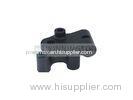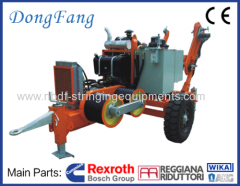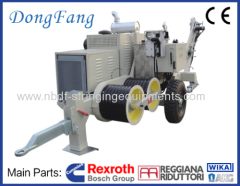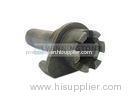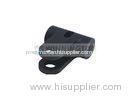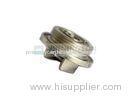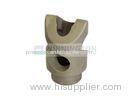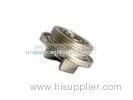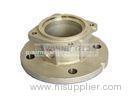|
Winnington Casting CO.,LTD
|
mechanical component Alloy Steel investment casting ceramic shell process ASTM JIS
| Place of Origin: | Zhejiang, China (Mainland) |
|
|
|
| Add to My Favorites | |
| HiSupplier Escrow |
Product Detail
Investment casting with ceramic shell process made of 4140 Alloy Steel, C
Investment casting with ceramic shell process made of 4140 Alloy Steel, CNC machining capacity in house.
Quick Detail:
1. Alloy steel Investment Casting of a mechanical component;
2. Material: 4140;
3. Manufactured by ceramic shell lost wax process;
4. Wax type: medium temperature wax;
5. Size: 50X80X35mm;
6. Weight: 0.056kg;
7. ISO9001:2008 certificated
Description:
Lost wax castings for mechanical components made of various alloy steel, carbon steel, stainless steel etc;
Please refer to below table for the most common material that We cast:
|
Stainless Steel (70%) |
Carbon Steel |
Alloy Steel |
|
303, 430, 420, 17-4PH, SCS1,CF3M (SS 316L), CF8M (SS 316), CF8 (SS304),CD4MCu, CD4MCuN,ANC20,1.4408,1.4517, 1.4306, and more |
SCS16, SCS14, SCS13, 1.0619, WCB, S355JR, 1045 , LCC and more |
ANC2,CLA12C,42CrMo,8Q,4140,6150 and more |
Overview of precision investment casting:
Applications:
Valves, Pumps, Pipe Fittings
Machinery
Power Generation
Automotive
Marine, Oil and gas
Other Mechanical Castings
Competitive Advantage:
|
Standards |
ISO, ASTM,JIS,DIN,BS,MIL |
|
Casting Size |
Maxium 500*500*350mm |
|
Casting weight |
10 g~80 kg |
|
Wall thickness |
Minimum thickness 1.5-2mm |
|
Casting process |
silica sol lost wax casting process |
|
In house Machining capacity |
7 sets CNC machining, 21sets CNC lathe |
|
Surface finish options |
electro polishing, satin finish, hand polished, pickled, zinc plating, vibratory polishing; Related Search
Steel Investment Casting
Investment Casting Stainless Steel
Stainless Steel Investment Casting
Investment Casting
Alloy Steel Casting
Alloy Steel Precision Casting
More>>
Find more related products in following catalogs on Hisupplier.comRelated Products
|

